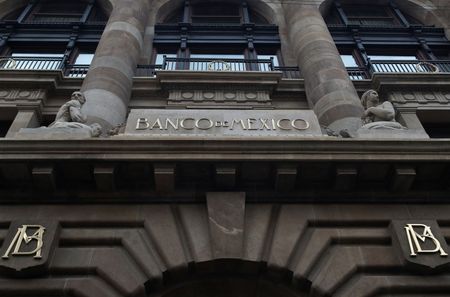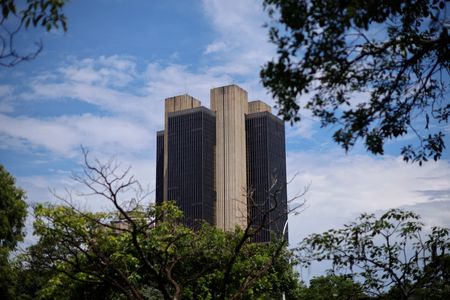By Pranoy Krishna
BENGALURU (Reuters) – Bank Negara Malaysia (BNM) will leave its key interest rate unchanged on Thursday and keep it there at least through 2025 as growth remains robust and inflation stays under control, according to a Reuters poll of economists.
While BNM has managed to keep inflation in check, currently at 2.0%, the Malaysian ringgit has flipped from being one of the worst performing Asian currencies to one of the strongest in recent weeks.
That suggests the central bank will be in no rush to cut rates anytime soon, aiming to avoid weakening the currency and importing inflation.
All 30 economists in the Aug.
27-Sept. 2 Reuters poll predicted BNM would leave its overnight policy rate at 3.00% on Sept. 5.
A median from a smaller sample showed rates would remain at the current level until at least 2026, a view unchanged since the beginning of the year.
Those predictions were in contrast to major central banks which were expected to cut rates at least once in 2024.
“There is no reason for BNM to change the policy rate right now…as growth is at the higher end of expectations and inflation has been surprisingly benign,” said Lavanya Venkateswaran, senior ASEAN economist at OCBC Bank.
Malaysia’s gross domestic product (GDP) grew 5.9% last quarter, the fastest pace in 18 months, driven by strong household spending, exports and investment.
Inflation is expected to trend higher in the second half of 2024 amid uncertainties emanating from a recent policy on reducing diesel subsidies, suggesting a rate cut from the central bank is unlikely over the coming months.
“There is still uncertainty about the timing of further fuel subsidy rationalisation and the bank is probably keeping an eye out for second-round effects from the previous diesel fuel subsidy removal, so a cut would appear premature,” said Moorthy Krshnan, senior Asia economist at Pantheon Macroeconomics.
The central bank said in a statement that inflation would continue to remain manageable even if it trended higher following diesel subsidy cuts in June.
The Malaysian ringgit has appreciated by about 6% this year, as increased expectations that the Federal Reserve will cut interest rates as early as this month have weakened the U.S.
dollar.
This suggests a rate cut from the central bank now is unwarranted and would likely be inflationary.
“The more significant determinant for the ringgit has been a weaker dollar story, as U.S.
growth concerns have increased. With the Fed poised to make cuts, the narrowing interest differential should be a positive for the ringgit,” added Krshnan.
(Reporting by Pranoy Krishna; Polling by Rahul Trivedi, Editing by William Maclean)











